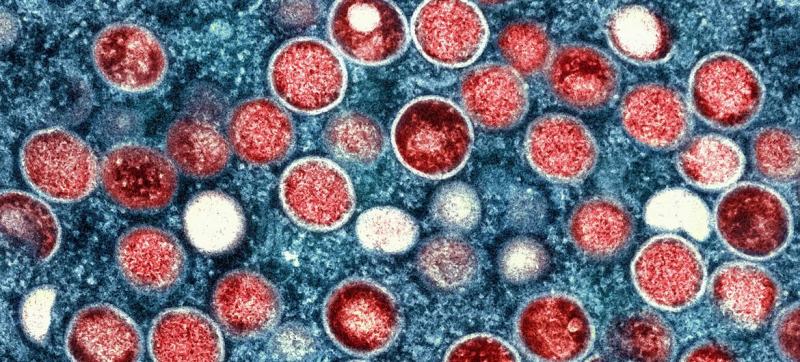 Mpox
Mpox
UNICEF issues USD 58.8 million appeal to halt ongoing mpox outbreak in Africa
The UN Children’s Fund, UNICEF, issued an urgent appeal on Friday for nearly $59 million to support efforts to halt the rapid spread of mpox in six African countries including Burundi, where youngsters have been impacted the most.
“Children in Burundi are bearing the brunt of the mpox outbreak with alarming rates of infection and health impacts,” said Dr Paul Ngwakum, UNICEF Regional Health Advisor for Eastern and Southern Africa. “Of the nearly 600 reported cases, two-thirds are children under 19 years old and the situation is escalating really rapidly with more than [a] 40 per cent increase in cases over the last three weeks.”
To date in Burundi there have been more than 14,000 suspected cases but no reported deaths from mpox. Neighbouring Democratic Republic of the Congo, however, has seen nearly 21,900 suspected cases and 717 deaths.
The UNICEF official insisted that with funding and prompt action in Burundi, “we have an opportunity to end this outbreak in a very short time period because the geographical area is kind of limited and with concerted effort from all partners, I think, we can limit the spread; we can contain the virus so we can stop the outbreak without any loss of life”.
Making classrooms safe
Following the start of the school year earlier this week in Burundi, the UN agency remains concerned about the rise of mpox among children under five years of age, who represent 30 per cent of reported cases – as in DRC.
To help teachers and parents understand the risks and minimize disruption, the UN agency has supported the education authorities to implement health measures in schools, train staff to recognize early symptoms of mpox and reinforce hand hygiene.
“Make no mistake, we don’t have all the answers. No one does. This is a rapidly evolving situation, with a new, infectious strain, and we are learning more every day about different modes of transmission. And with more information, we update our messaging and our response,” said Dr Ngwakum.
The UNICEF appeal will also provide mental health support for parents and frontline workers who may face hostility from some communities in part because of the association of mpox with sex, which is responsible for some transmission – but by no means all of it.
Harmful stigma
“Sex in Africa is not something that is spoken of on a daily basis. And if they think you are having a sexually transmitted disease, it stigmatizes you as well,” explained Dr Ngwakum. “We try to explain that this is not the case. Most children have it from body-to-body contact or contact with animals or contact with infected materials, which is not having anything to do with human-to-human sexual contamination.”
Communities also remain fearful of a repeat of previous serious health outbreaks such as Ebola or COVID-19, “so there is an important role we are playing to dispel myths, and calm fears”, the UNICEF official explained.
Highlighting the stark contrast between the high number of suspected deaths from mpox in DRC and Burundi, Dr Margaret Harris from the UN World Health Organization (WHO) explained that this was likely owing to the longstanding humanitarian emergency in eastern DRC.
“Many of the children whom we've seen horribly, sadly die in the Democratic Republic of Congo were very immuno-suppressed through being severely malnourished and having suffered the effects of conflict and perhaps also having other diseases at the same time,” she told journalists in Geneva.
Meanwhile, the World Health Organization (WHO) has announced the MVA-BN vaccine as the first vaccine against mpox to be added to its prequalification list.
The prequalification approval is expected to facilitate timely and increased access to this vital product in communities with urgent need, to reduce transmission and help contain the outbreak. WHO’s assessment for prequalification is based on information submitted by the manufacturer, Bavarian Nordic A/S, and review by the European Medicines Agency, the regulatory agency of record for this vaccine.
“This first prequalification of a vaccine against mpox is an important step in our fight against the disease, both in the context of the current outbreaks in Africa, and in future,” said WHO Director-General Dr Tedros Adhanom Ghebreyesus. “We now need urgent scale up in procurement, donations and rollout to ensure equitable access to vaccines where they are needed most, alongside other public health tools, to prevent infections, stop transmission and save lives.”
The MVA-BN vaccine can be administered in people over 18-years of age as a 2-dose injection given 4 weeks apart. After prior cold storage, the vaccine can be kept at 2–8°C for up to 8 weeks.
“The WHO prequalification of the MVA-BN vaccine will help accelerate ongoing procurement of the mpox vaccines by governments and international agencies such as Gavi and Unicef to help communities on the frontlines of the ongoing emergency in Africa and beyond,” said Dr Yukiko Nakatani, WHO Assistant Director-General for Access to Medicines and Health Products. “The decision can also help national regulatory authorities to fast-track approvals, ultimately increasing access to quality-assured mpox vaccine products.”
Support Our Journalism
We cannot do without you.. your contribution supports unbiased journalism
IBNS is not driven by any ism- not wokeism, not racism, not skewed secularism, not hyper right-wing or left liberal ideals, nor by any hardline religious beliefs or hyper nationalism. We want to serve you good old objective news, as they are. We do not judge or preach. We let people decide for themselves. We only try to present factual and well-sourced news.







